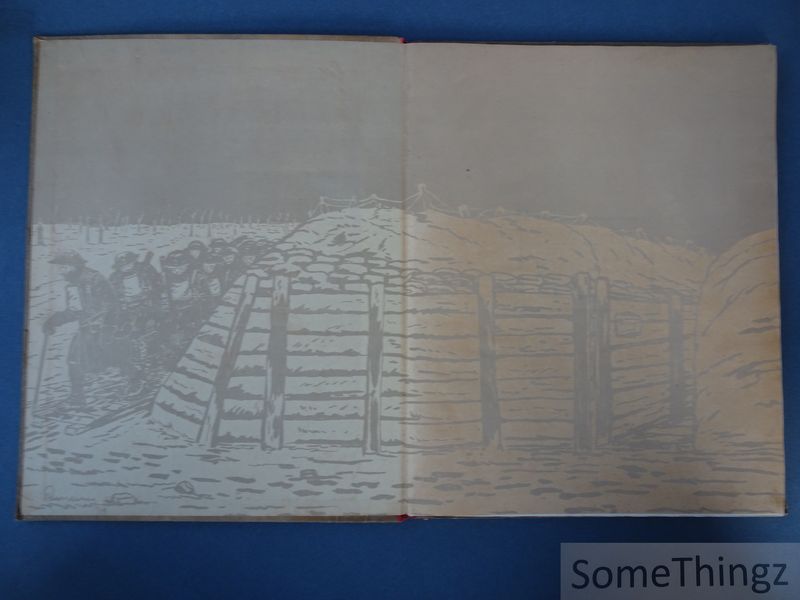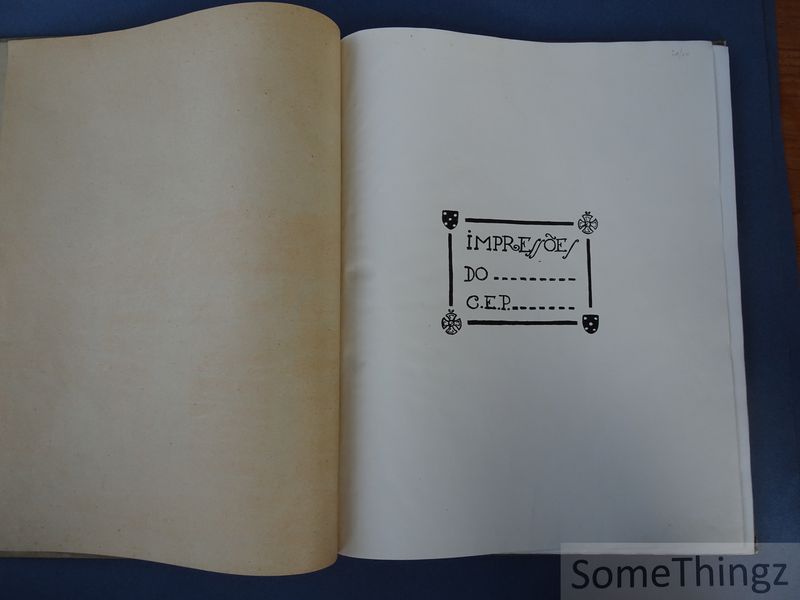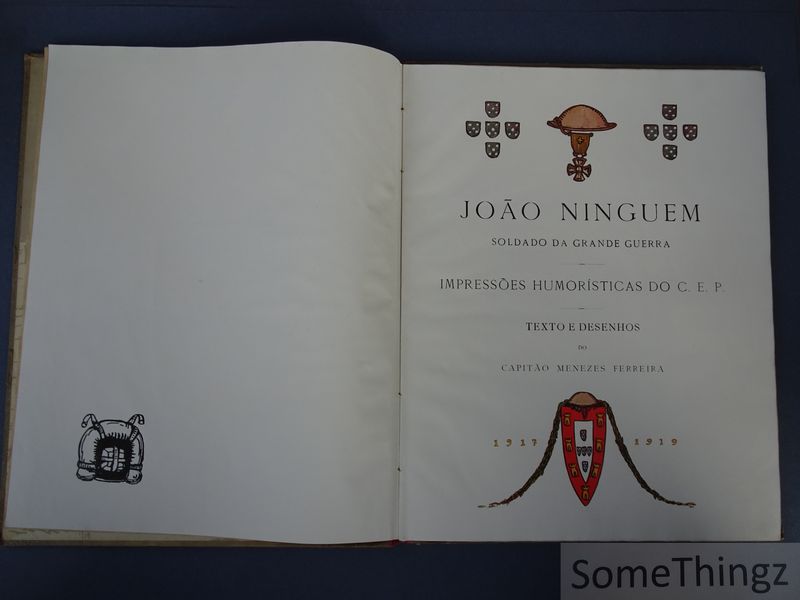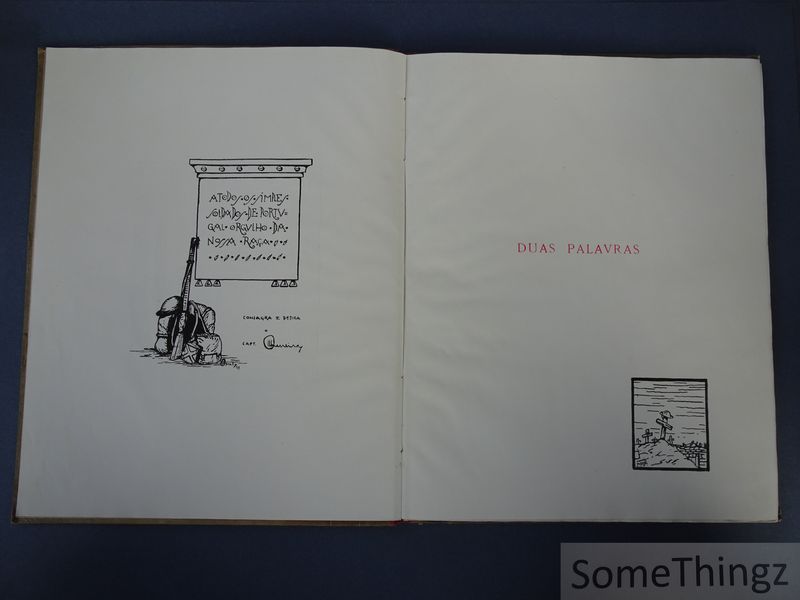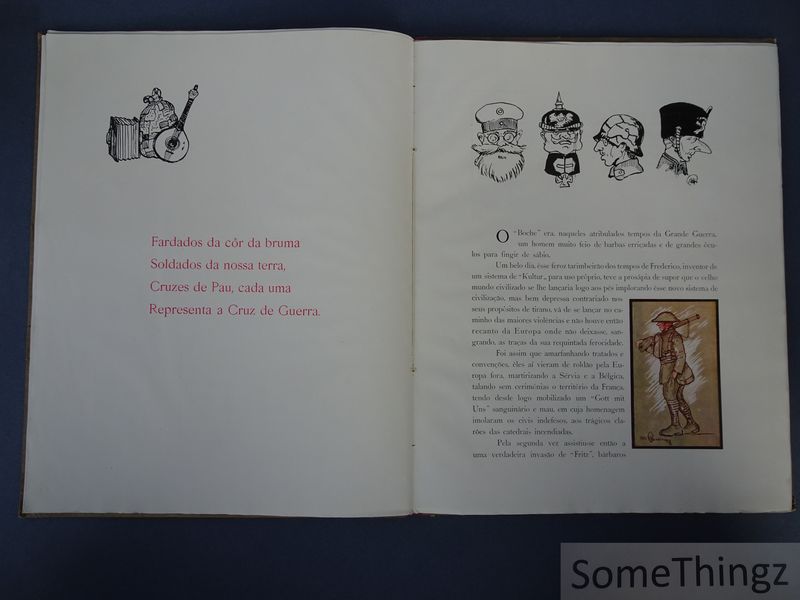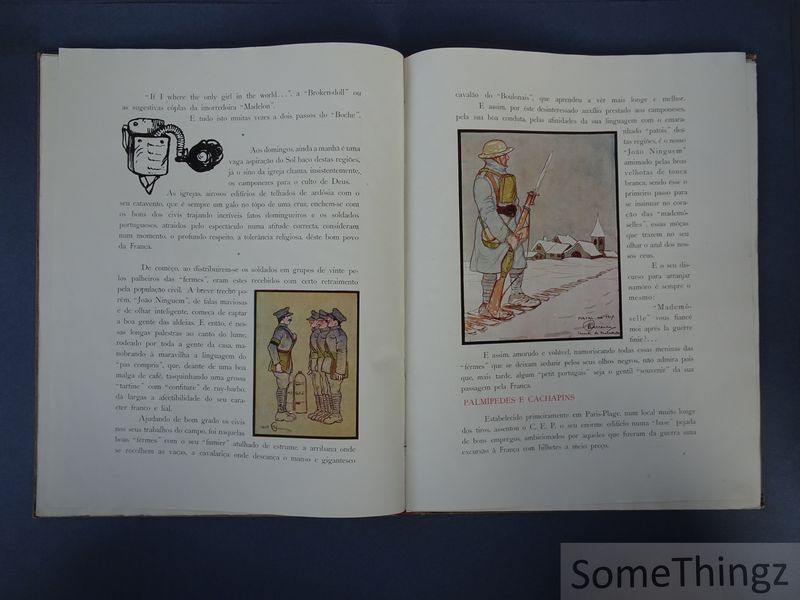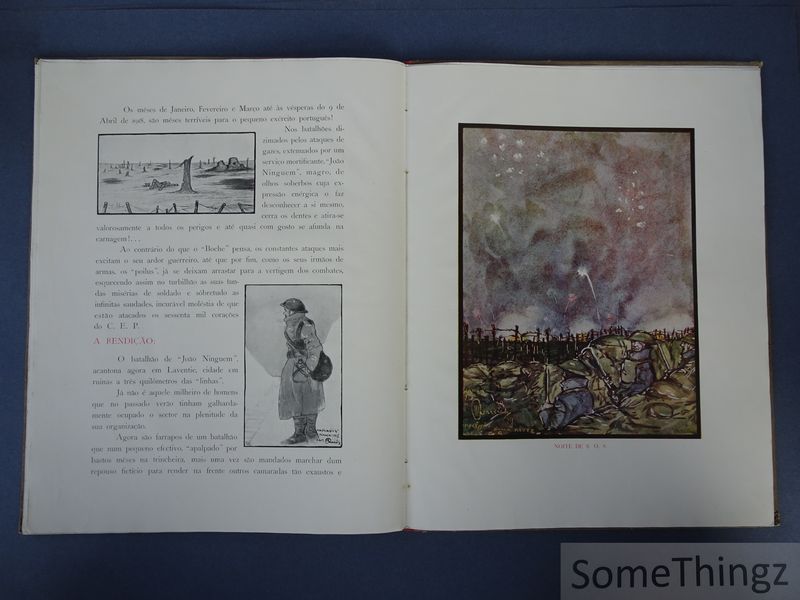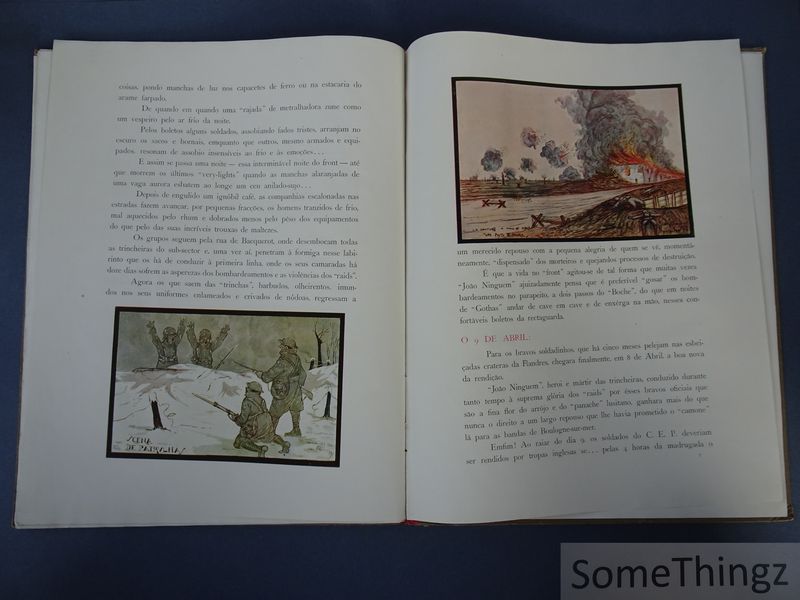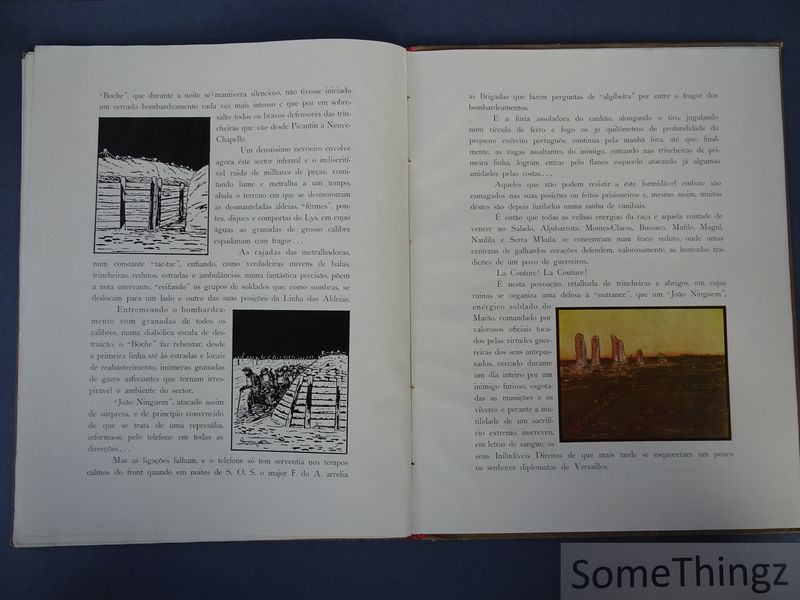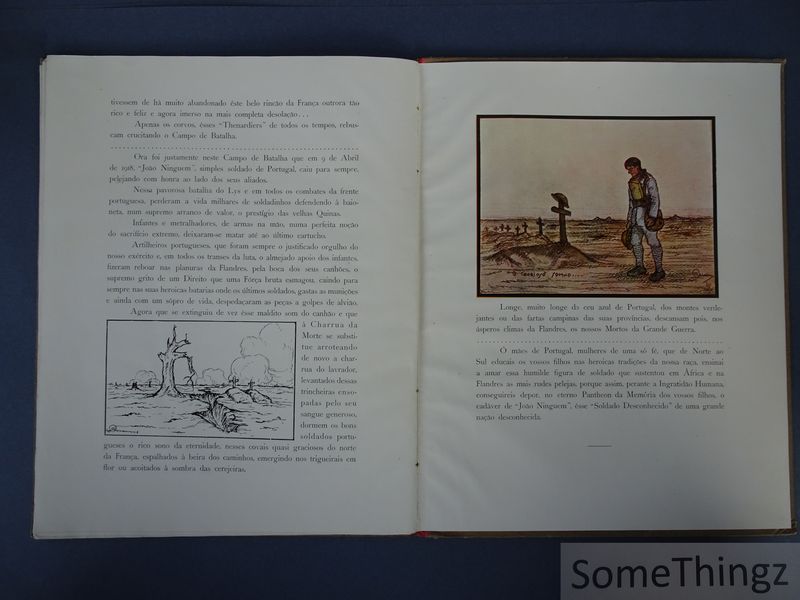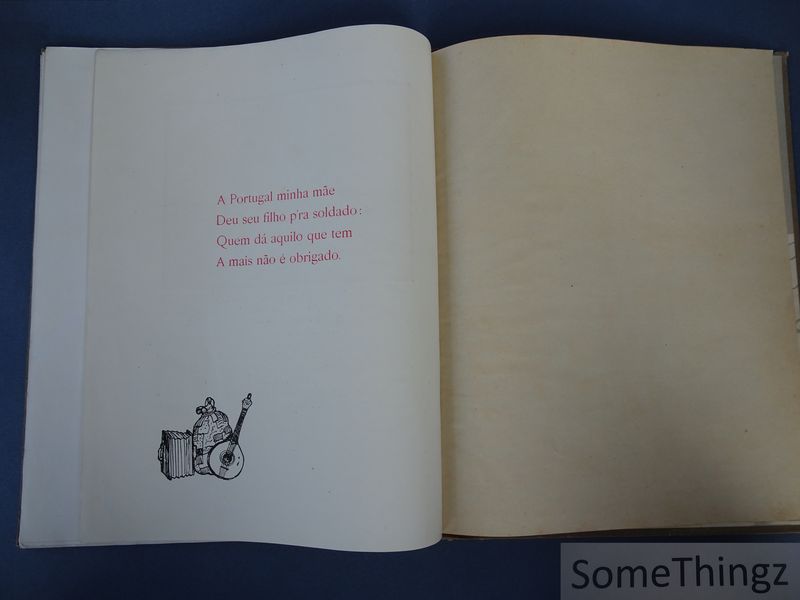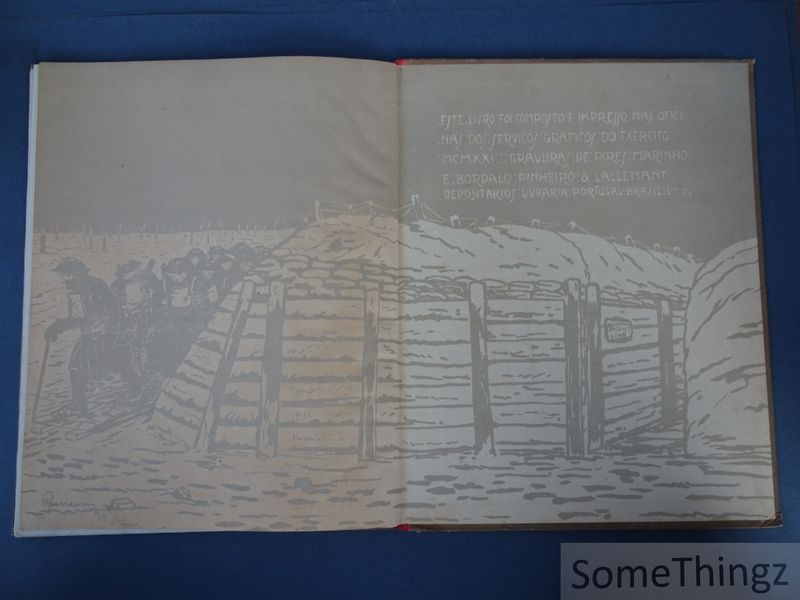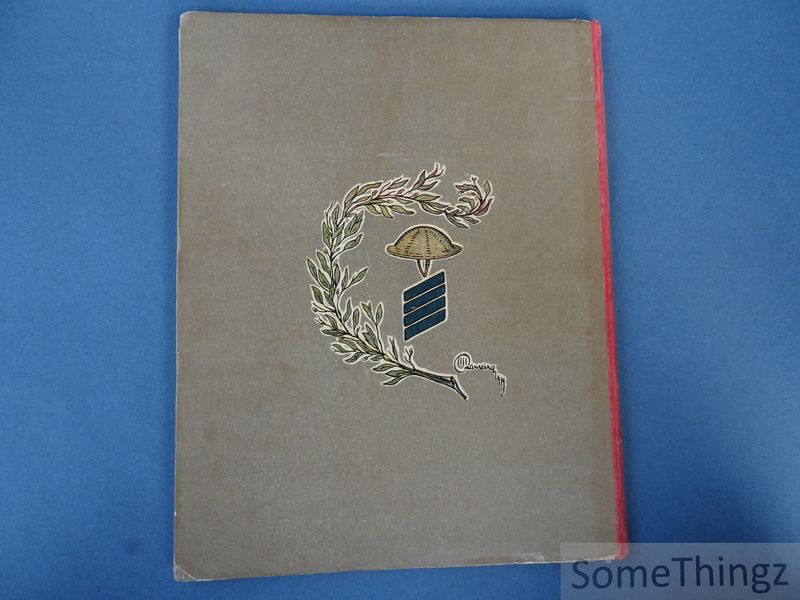BOOKS
Capitao Menezes Ferreira (texto e desenhos).
Joao Ninguem. Soldado da Grande Guerra. Impressoes humoristicas do C.E.P. 1917-1919.
Portugal-Brazil, Impresso nas Oficinas dos Servicos Graficos do Exercito, 1921.
€ 695.00
Bound, spine in cloth, illustrated boards, 64 non-numb.pp., 28.5x36cm., ills. in col., in good antiquarian condition (binding with normal trace of use, small tear in the spine, pages a bit loose, overall in good to very good condition). A desirable copy of this hard to find publication.
João Ninguém: soldier of the Great War: humorous impressions of the C.E.P. written by Captain Meneses Ferreira (author and illustrator), it refers to the efforts of the Portuguese Expeditionary Corps sent to France (in which the author was integrated), whose soldiers fought in the First World War. It was published by Livraria Portugal-Brasil, with a total of 64 pages. It belongs is considered a "bibliographic rarity". (see: wikipedia) / The tragicomedy of soldier John Nobody in World War I.
And what if, in the midst of suffering, the human spirit, at its best, could laugh at misfortune, joke about fear, mock problems, enjoy its own flaws, weaknesses and sadness? This is the tragicomic war of John Nobody, told in words and drawings by those who lived it, in the distant years of 1917 and 1918, on land cut through by the Lys canals. Portugal's participation in World War I did not leave good memories for anyone. It was a drama, from a human, social and economic point of view, which also failed to achieve the political and geostrategic objectives that would justify the country's involvement in the conflict. The soldiers, who fought in Africa and Europe, were subjected to physical and moral exhaustion, hunger, cold and risks arising from insufficient preparation and inadequate equipment. But what if, in the midst of so much suffering, the human spirit, at its best, could laugh at misfortune, joke about fear, mock problems, and make fun of its own flaws, weaknesses, and sadness? This was exactly what Captain Menezes Ferreira did, a member of the Portuguese Expeditionary Corps in the distant territories of Aire Sur La Lys, a land that was soon renamed Lys-bonne, so many were the Portuguese settled there. João Ninguém Soldado da Grande Guerra is a tragicomedy written and drawn by a man, about himself and his peers, subjected to extreme situations and, even so, finding in it a spirit that is difficult to break. It tells the story of the friendly little soldiers, swarthy men who, from the eight provinces of Portugal, rushed with backpacks on their backs without missing boarding to honor their battalions. Among these was João Ninguém, like the others, a representative of the small fry of international society, who after having endured the sun of Paulona de Tancos, lightly covered in very rudimentary warrior training, was finally called to embark in that harsh winter of 1917, with the aim of going to fight the boches. He talks about the adventures of the four long days at sea and the train journey, drowning his sorrows in the brandy of the ration, already half resigned and wrapped up in the fatalism that came to them from their race. He animatedly describes the functions of the various soldiers the mischief between palmípedes and cachapins, between soldiers and officers; the camaraderie, the rehearsals and maneuvers where he showed himself to be half Zagalo, half fado singer and the relationship with the other contingents on the ground. All in an unusually fun way. And the tone continues even in the trenches, even with the miserable conditions of his life as a mole, inside the shelters, around empty cans improvised braziers, anxiously awaiting the time to kill or be killed. Only at the end does the tone slip into some bitterness, in the face of the rage of destruction, the constant and deleterious breath of death, which hardened the hearts of the combatants, as a result, perhaps, of the terrible months for the small Portuguese army, which were January, February and March of 1918, in the battalions decimated by gas attacks, exhausted by mortifying service, frozen with cold, barely warmed by rum and bent less by the weight of their equipment than by that of their incredible bundles of Maltese. Finally, he tells of that terrifying battle of the Lys, in which infantrymen and machine gunners, weapons in hand, in a perfect awareness of extreme sacrifice, allowed themselves to be killed until the last cartridge. John Nobody stayed there. Menezes Ferreira was lucky enough to return to print this extraordinary narrative of the first global armed conflict. It is worth seeing the complete work, which I cannot do justice to. In uniform the color of mist Soldiers of our land, Wooden crosses, each one Represents the War Cross To Portugal my mother gave her son to the soldier: Whoever gives what he has Is not obliged to give more? On the sidelines The Portuguese soldiers interacted easily with the French population and, in the short time they had before being sent to the front, they quickly lived up to their reputation as flirts. They helped the peasants and in return, they invited them to their homes. This gave them the freedom to try to win over the local girls, a mission in which they competed with the steaks, skinny and phlegmatic, especially having on their side the prestige of pounds, always a competitor in matters of the heart. The Portuguese motto was always the same, in scratchy French: Mademóselle vous fiancé moi aprés la guerre finie. And so, John Nobody, carried away by his good conduct and the affinities of his language with the tangled patois of those regions, managed to insinuate himself into the hearts of the mademóselles. Loving and fickle, flirting with all those girls from the fermes who let themselves be seduced by his black eyes, it is no wonder, therefore, that, later on, some petit portugais read a Portuguese-Portuguese baby was the kind souvenir of his time in France. But that's another story. (from: osaldahistoria.blogs.sapo.pt)


